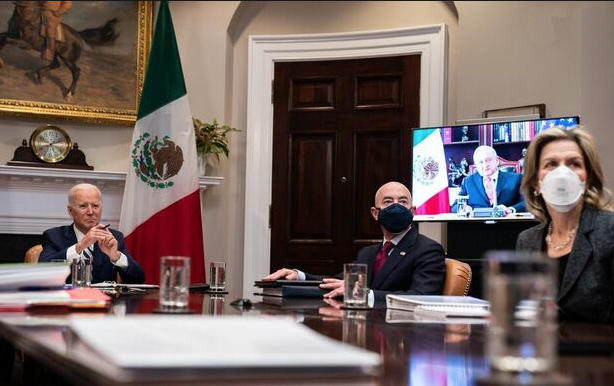The global agenda of the last few years has been marked by events of great magnitude that have captured the attention of the media, citizens, and elites. The 2008 financial crisis, the Covid-19 pandemic, and, in the last two months, the Russian invasion of Ukraine, have occupied political and media agendas. This juncture has kept Latin America in the background and out of the orbit of the global debate.
In this new global context, claiming Latin America’s relevance is complicated for at least two reasons. First, an overly simplistic narrative of bipolarity is developing, which articulates international relations around two great giants: China and the United States. In this scenario, actors such as Latin America or the European Union itself are relegated to the periphery and subordinated to the great powers.
Secondly, although the region has structural deficits and pending agendas, the fact that it does not generate imbalances of global impact places it in a peripheral space.
Fortunately, there are initiatives that continue to invite us to rethink Latin America’s role in the global order and highlight the region’s relevance. Such is the case of the meeting of Think Tanks, Research Centres and Study Associations based in the EU dedicated to the analysis of Latin America and the Caribbean and bi-regional relations between Europe and Latin America and the Caribbean, held in Berlin on April 28 and 29 this year. This meeting, organized by the EU-LAC Foundation, the Ibero-American Institute of Berlin, and the German Institute of Global and Area Studies (GIGA), provided an interesting forum for discussion on the state of the region and generated new synergies for rethinking the role of Latin America in the new global order.
The new scenario is especially critical because many of the global challenges are the result of overlapping conjunctures. Just when the world had not yet fully recovered from the 2008 financial crisis, the COVID-19 pandemic arrived, and, recently, the Russian invasion. These events, in turn, have generated distortions that have transcended specific spheres and permeated a multitude of dimensions of the public sphere. Thus, consequences such as the economic, energy, or migration crises have numerous ramifications that involve the actions of multiple actors and from different spheres of action. These are complex phenomena that require complex actions.
Latin America cannot remain on the sidelines of decision-making or become a mere passive actor. Therefore, today, more than ever, it is necessary for the governments of the region to design a joint agenda that breaks with any bipolar logic and opens the doors to multilateralism. In this sense, the European Union can be an important ally for Latin America because, possibly, it is also trying to redesign its place in the new global order, moving away from the extended shadow of China and the United States.
Within this logic, it is necessary for Latin America to equip itself with the means to be able to integrate into the global order. In this regard, one of the most urgent measures is to resume the summits of presidents within the region after a seven-year hiatus. Today, more than ever, it is necessary to recover dialogue, even if it does not necessarily lead to great consensus. It is especially important that there be an independent forum for discussion that does not rely on the tutelage of third countries or organizations.
Secondly, it is important to rethink the narrative of integration agreements, since previous experiences are the result of a past context. New projects should be promoted that are understood as geopolitical instruments with economic interdependence, rather than mere trade agreements. Finally, efforts should be made to implement coordinated actions, at least in the main agendas, despite the maintenance of bilateral relations between States.
Once the dialogue within the region has been strengthened, Latin America will be in a stronger position within the international order and will be able to find allies, such as the European Union, to face the new global challenges and minimize, as far as possible, the geostrategic preponderance of the United States and China.
The crisis of globalization, climate change, energy transition, or migration crises cannot be efficiently resolved by thinking in a bipolar logic or under acute geostrategic rivalries. This could lead to further imbalances and the persistence of many of these problems over time.
Latin America must therefore take advantage of the opportunities offered by the new context and position itself as a key player in processes as important as energy policy or the supply of raw materials.
These are turbulent times in which different agendas require greater economic, social, and territorial cohesion. Why not even renew the social contract? However, this is no longer feasible by thinking only in terms of a State or bipolar logic. In the face of new challenges, all the pieces must find their place on the chessboard. That is why initiatives such as the one launched last week by the EU-LAC Foundation are so important. Let us hope that many more will follow.
Translated from Spanish by Janaína Ruviaro da Silva












